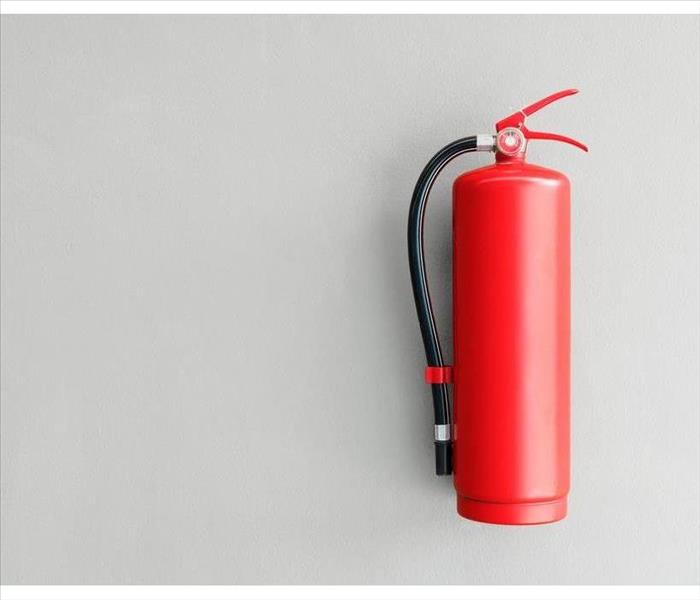How Do I Protect My Business from Fire Disaster?
10/11/2022 (Permalink)
Fire is a threat to any business, no matter how small or large. While you can't stop every fire, you can make sure that your business is prepared if one does happen. Here's how…
How to Protect your Business from Fire
Your business is your livelihood, and it's always wise to take action to protect yourself and others in the event of a fire. To do so, you'll need to install various safety features in your building. The following are some of the most important ones:
- Fire extinguishers. Extinguishers discharge foam or powder that smothers flames. They should be installed at key locations throughout your building, including near exits and stairwells, the cafeteria or kitchen area, and the garage if you have one on site.
- Alarms/detectors. Detectors should be installed on each floor of your office building as well as in every room (including bathrooms).
What is the first step?
The first step is to have a fire extinguisher in your office. They are relatively easy to use, and everyone should be familiar with the process of using one.
The second step is to have fire alarms and sprinklers installed in your office. These will help detect any fires as quickly as possible, alerting you and others nearby so they can safely exit the building before any damage occurs.
The third step is to have a plan for when there is a fire in your building or on its way (e.g., calling 911). You'll need an escape route mapped out that takes people away from danger while getting them out of the building safely—and this map needs to be posted somewhere everyone can see it as soon as possible!
What do you need in a commercial fire protection plan?
- Have a plan. It's important to include your business’s emergency contact information, any commercial fire protection equipment you have and where it is located, as well as the evacuation route for employees and customers.
- Practice your plan regularly. A good idea is to do so monthly or even weekly with all employees so that everyone knows what to do in case of a fire or other emergency.
- Make sure everyone knows the plan—including new hires! It's also important that everyone stays informed about changes to the plan over time, such as when new exits open or security cameras are added for extra protection against theft and vandalism during power outages.
- Test your plans regularly with drills that simulate real-life situations so people know what actions they should take in an actual emergency like a house fire or earthquake (or whatever else might happen).
Train your employees
Training your employees is a crucial part of preventing a fire disaster in your business. It's important to train them on how to handle certain situations like a fire or other emergency. You need to tell them what they should do if they see something suspicious, hear an alarm going off, or have any other suspicions that might mean something bad is happening in the building.
You should also provide training on what actions they can take if there's an actual fire or other emergency and all exits are blocked by smoke and flames (e.g., by making sure everyone knows how to break through an unbroken window).
Create an Emergency Action Plan with employees and make sure it is practiced regularly.
To ensure that everyone is prepared and knows what to do, you should create an emergency action plan with employees before a fire strikes. When creating your plan, make sure it includes:
- How and when to evacuate your business
- Who will evacuate first, second and so on (you should designate roles for each employee)
- What items need to be saved before exiting the building
Once you’ve created this crucial document, you need to make sure it is practiced regularly with all employees so they know exactly what steps they need to take in case of a real-life emergency.
With the right planning and preparation, you can be ready for any disaster. We hope these tips have given you some ideas on how to protect your business from fire and put your mind at ease that everything will be okay if something goes wrong.




 24/7 Emergency Service
24/7 Emergency Service
